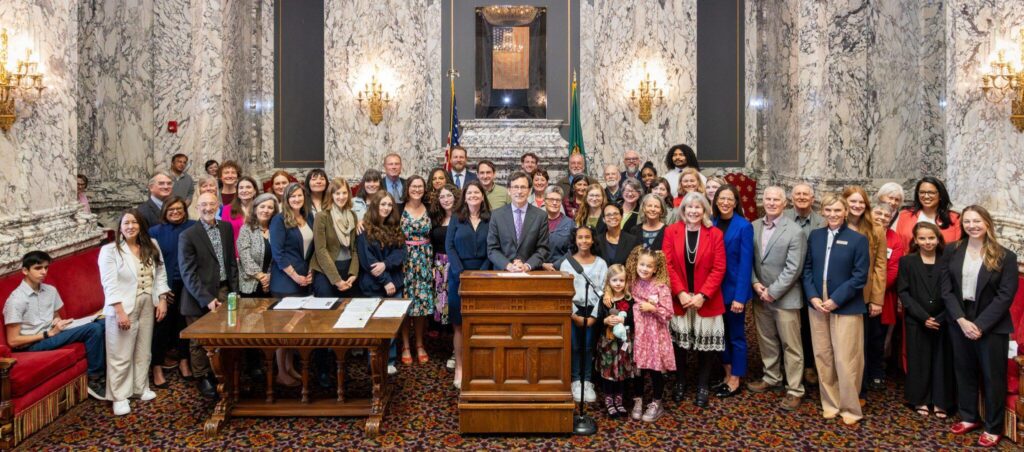Washington State is poised to make a significant stride in environmental stewardship with the introduction of the Recycling Reform Act, a comprehensive legislative initiative spearheaded by the Department of Ecology. Designed to overhaul the state’s recycling system, the Act aims to address mounting concerns over waste management inefficiencies, reduce environmental impact, and promote a circular economy. As communities and businesses prepare to adapt to the new regulations, the Department of Ecology has emphasized collaboration and education to ensure a smooth transition. This article delves into the key provisions of the Recycling Reform Act, its expected benefits, and the challenges ahead for Washington State.
Overview of Key Provisions in Washington States Recycling Reform Act
The recent Washington State Recycling Reform Act introduces a transformative framework designed to enhance recycling systems and reduce waste statewide. Central to the legislation is the establishment of extended producer responsibility (EPR), which shifts the burden of recycling program funding and management from local governments to producers. This approach fosters accountability and promotes sustainable packaging designs. Additionally, the Act mandates the creation of a statewide recycling infrastructure to standardize service quality, reduce contamination rates, and help residents easily understand recycling guidelines.
Key components of the reform include:
- Producer Responsibility: Producers must finance collection, processing, and recycling of their products’ packaging.
- Standardized Labeling: Clear recycling instructions will be mandated to minimize confusion and improve participation.
- Waste Reduction Incentives: Encouragement of reusable and recyclable packaging through incentives and penalties.
- Annual Reporting: Producers are required to report on waste diversion rates for transparency and continuous system improvement.
| Provision | Purpose | Impact | ||||||||||||||||||||||||||
|---|---|---|---|---|---|---|---|---|---|---|---|---|---|---|---|---|---|---|---|---|---|---|---|---|---|---|---|---|
| Extended Producer Responsibility (EPR) | Shifts costs to producers | Lowers taxpayer burden | ||||||||||||||||||||||||||
| Standardized Labeling | Clear recycling guidance | Reduces contamination |
| Locality | Previous Recycling Rate | Post-Reform Target | New Initiatives |
|---|---|---|---|
| Seattle | 45% | 60% | Expanded curbside pickup, community outreach |
| Tacoma | 38% | 55% | New sorting technology, resident workshops |
| Spokane | 35% | 50% | Partnerships with local businesses, increased bins |
Waste management practices have also evolved to embrace circular economy principles more fully. Emphasis is being placed on reducing contamination rates, encouraging waste reduction at the source, and integrating innovative recycling technologies. This legislation has accelerated the shift from traditional landfill-dependent models toward more sustainable frameworks where materials are kept in use longer. The collaboration between state agencies and local governments ensures a cohesive approach, fostering an environmentally responsible culture and adherence to new regulatory standards.
Expert Recommendations for Effective Implementation and Community Engagement
Effective implementation of the Recycling Reform Act hinges on a clear, collaborative approach among local governments, waste management companies, and community organizations. Prioritizing transparency and accountability in reporting will strengthen trust and facilitate smoother transitions to new recycling protocols. To ensure success, stakeholders should consider integrating data-driven monitoring systems that track waste diversion rates and identify areas needing improvement, fostering a culture of continuous progress.
Community engagement is equally critical. Providing accessible education campaigns tailored to diverse demographics encourages widespread participation and compliance. Key strategies include:
- Inclusive workshops: Hosting sessions that address specific neighborhood concerns and language needs
- Incentive programs: Rewarding households and businesses that achieve recycling milestones
- Collaborative feedback channels: Utilizing social media and town hall meetings to gather citizen input and suggestions
| Strategy | Expected Outcome |
|---|---|
| Data-Driven Monitoring | Improved accuracy in waste management reporting |
| Educational Workshops | Higher participation rates across demographics |
| Incentive Programs | Motivated community compliance |
| Feedback Channels | Responsive policy adaptations |
In Conclusion
As Washington State moves forward with the Recycling Reform Act, the Department of Ecology underscores the importance of collective responsibility in achieving a more sustainable future. With enhanced producer accountability, improved waste management systems, and increased public engagement, the state aims to set a precedent in environmental stewardship. Stakeholders and residents alike are encouraged to stay informed and participate actively as the new regulations take effect, marking a significant step toward reducing waste and protecting Washington’s natural resources.
